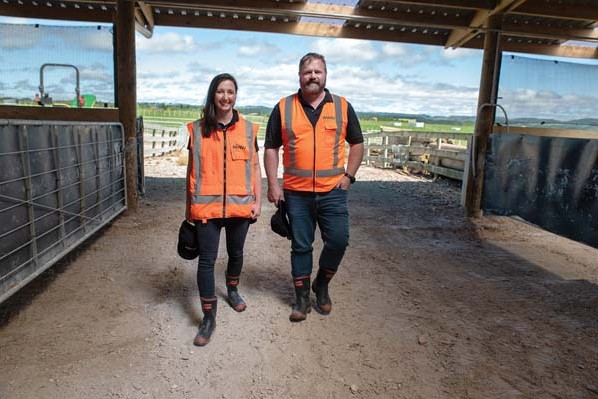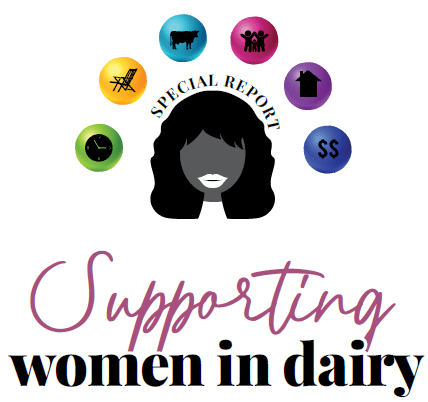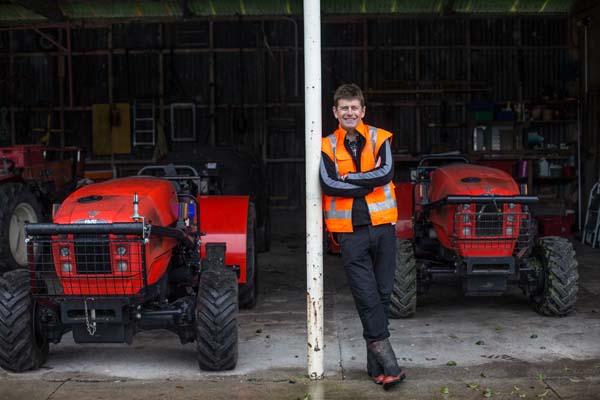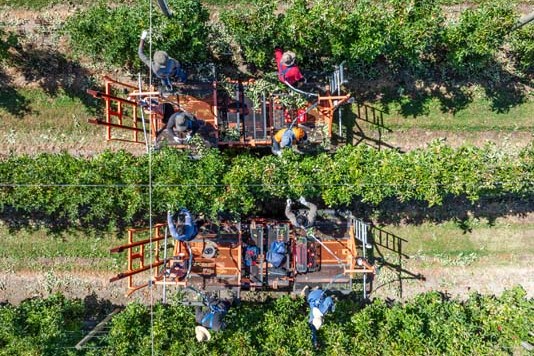Keeping it in the family
When Cleo Te Kiri became pregnant with her first child she was on the cusp of moving up the career ladder at Pāmu. The pressure to retain her career trajectory saw her return to work quickly without much room for flexibility, however, Pāmu’s overhaul of its parental leave care has made the experience more positive with the welcoming of her second child. Sheryl Haitana reports.

 Business manager Cleo Te Kiri has been paramount in the changes Pāmu has made around its parental care leave policy.
Business manager Cleo Te Kiri has been paramount in the changes Pāmu has made around its parental care leave policy.
Having experienced the reality of juggling work life with having a baby, Cleo was asked to write a report for Pāmu with recommendations on how they could better support parents and help them successfully return to work.
Cleo has worked at Pāmu for 10 years, moving up from a farm technician to a business manager, now overseeing five Pamu organic farms.
When she had her son, Awa, she was in a senior business analyst position, moving into a business
manager role, overseeing one farm and supporting the business with analytical work.
“I only took three months off, that was around financial pressures and concerns about losing my place. I was
at quite a progressive point in my career at that time so my husband and I made the arrangement that he
would take more of the time off.”
Pāmu at that time adhered to standard government policies for parental leave and there was not a lot of flexibility around hours or opportunity to work from home.
The reality of returning to work fulltime three months after having her first child, was harder than Cleo
anticipated.
“I was probably a bit naive. I put a lot of pressure on myself,” Cleo admits.
“On reflection, I wasn’t ready to come back, but I was committed to that decision. I felt I had to stick to it and prove myself.
“It was really stressful, on home life and trying to deliver at work with a newborn baby at home. I was heading quite a big project and I was often coming into work on weekends as well – that was me, nobody asked me to work weekends.
“I was still breastfeeding for about six months when I came back, so my husband brought my son into work and I pumped.”
As part of Pāmu’s revision of how to support working parents and elevate women more in the business, Pāmu’s chief people, safety and reputation officer, Bernadette Kelly asked Cleo to give some insights on her experience.
She wrote a paper and gave recommendations based on research she did on other companies.
“A massive testament to Pāmu, they completely flipped from what we had to what we have now and took almost everything onboard and made those changes, and it was chalk and cheese.
“It was a very different experience second time around having my daughter Māia. I took six months off and I have a flexible arrangement around where I do my work and what hours, which has been amazing.”
The top-up payment during her leave was a game-changer. Cleo also got to have a lot of involvement in who was going to look after her portfolio and set up some regular contact during her time off, which helped the business performance to be smooth.
“What is cool is that during the time of having young kids and being pregnant I have been promoted, so I have felt no discrimination toward what chapter I am in in terms of my progression.”
In Cleo’s report she recommended counselling for parents returning to work, and thought she’d better take that offer up seeing she recommended it.
“There are all sorts of things going on for mums returning to work; You doubt your place when you’ve been away, you’re playing catch up and you’re also fatigued.
“It can be hard slotting back into that job and feeling confident, feeling valuable, juggling the work and children and your mum-guilt.”
Cleo found the counselling extremely valuable.
“It was awesome, I didn’t realise how much I would benefit from it. Having someone to download your situation to, they can pinpoint some of the struggles you’re having and give you some tools to work through it and empower you.”
It’s been rewarding to see the new opportunities flow through to onfarm staff, which can be more difficult to bring in flexibility because of the nature of the roles, Cleo says.
“There is one woman in my team, she transitioned back in and we found a way to work around the roster with the support she had around her and the hours she could commit to. That was really cool to be able to see that happen.”
Managing the mum transition
Having a supportive and open-minded manager is key.
Cleo’s manager Shaun Neeley has played a hugely supportive role in initiating chats around what would work for Cleo and for the business with parental leave.
“He was great at suggesting ideas so I could be successful at home and at work.
“The conversation has always been open. There wasn’t an end date, that by this time you have to be doing this. It’s a continual conversation so it’s been really appreciated.”
There is a lot of data around how much it actually costs a business to lose and replace a valuable and experienced employee. Supporting them with more flexible arrangements probably means they are going to be with the business a lot longer than if they were more restrictive, Shaun says.
“We can see it with new people coming into a system, there is a cost around productivity. “Trying to make this transition as smooth as possible for working parents actually saves us a lot of money. It is quite affordable.”
“Retaining that talent in the business is hugely beneficial to Pāmu”, he says.
“The actual challenge is how to support working parents so as not to overload their schedule,” he says.
There are always comments about trusting employees who are working from home, but the biggest risk is actually employees working too much.
“We have to flip it the other way around, we are not worried that she’s going to under-do it, we’re worried it’s going to be too much, if we don’t support that the right way she will feel like that it is a burden and she will potentially become disengaged.
“I think that’s a bigger risk. Delivery against the business goals is easy to monitor. The challenging thing is seeing back home they are putting in 20 hours a week that you’re not aware of.”
Managers need to think up flexible job descriptions and have open minds, Shaun says.
“There is a massive talent pool out there across the industry that with a little bit of flexible thinking can be accessed more.”





